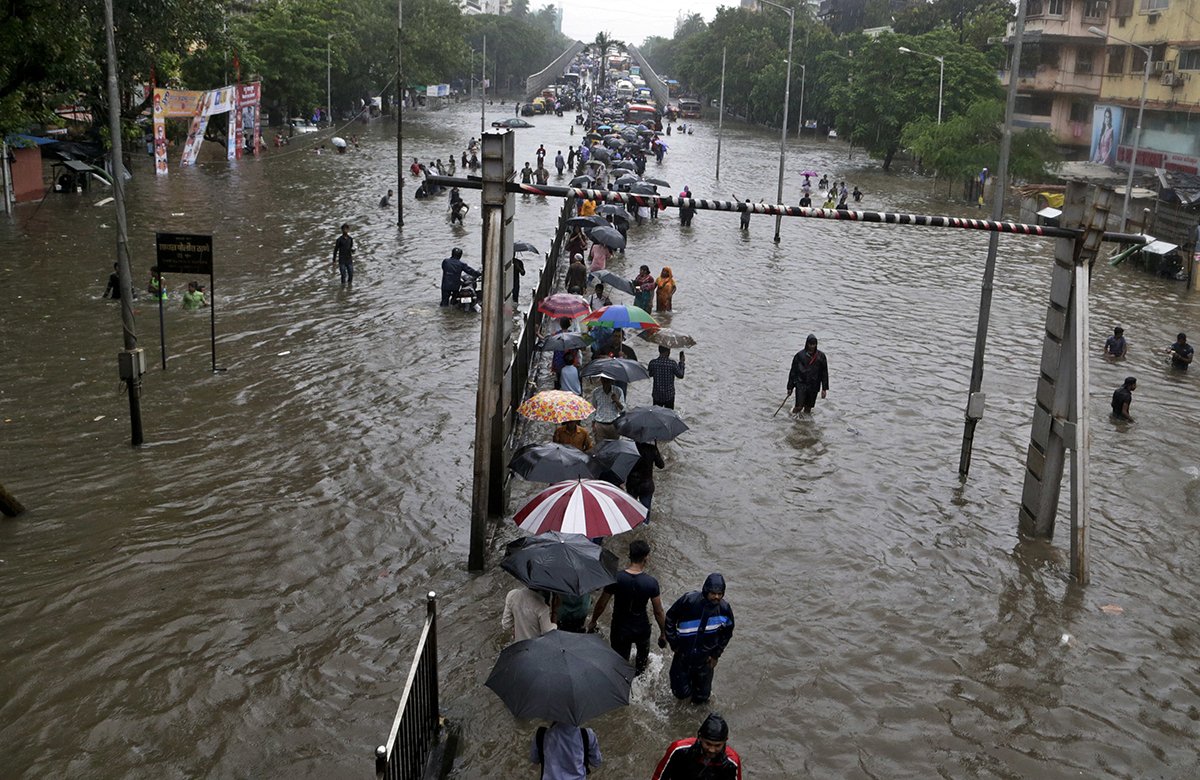When Hurricane Harvey struck coastal Texas, hundreds of thousands of people lost electricity. Homes were destroyed, streets were flooded, and access to food, water, and medical assistance became limited.
If the ensuing response effort wasn’t so robust, and if this didn't happen in the US, with the world's largest economy, the people affected would be teetering on the edge of life-threatening poverty.
Globally, extreme weather events displace roughly 21.7 million people from their homes each year, and 95% of those people live in the developing world where response efforts are sometimes inadequate, according to the Environmental Justice Foundation.
Take Action: Call on World Leaders to Help Millions of People Affected by Extreme Weather
Storms of Hurricane Harvey’s magnitude regularly strike countries like Myanmar or India, causing staggering loss of life. In 2008, for instance, more than 138,000 people died in Myanmar from Cyclone Nargis.
“If you translate those kinds of fatalities into Western Europe or North America, imagine what the outcry would have been,” Steve Trent, executive director of the Environmental Justice Foundation, told Global Citizen.
Trent’s organization released a new report today on how the accelerating pace of climate change threatens to intensify extreme weather events, make droughts and flooding more likely, and cause extreme heatwaves. Cumulatively, these effects will expand an emergent category of people that transcends borders and demands political action: climate change refugees.
Read More: How a Tiny Alaska Town Is Leading the Way on Climate Change
By 2100, there could be 2 billion climate change refugees around the world, the bulk of whom will come from the developing world. Trent said that the chaos caused by the current refugee crisis in Europe is just a glimpse of what’s to come if the world fails to create a framework for dealing with these refugees.
 People walk through a waterlogged street following heavy rains in Mumbai, India, Tuesday, Aug. 29, 2017. Heavy rains Tuesday brought Mumbai to a halt flooding vast areas of the city.
People walk through a waterlogged street following heavy rains in Mumbai, India, Tuesday, Aug. 29, 2017. Heavy rains Tuesday brought Mumbai to a halt flooding vast areas of the city.
“We were paralyzed, there was no framework, there was no collective understanding of how to deal with this,” Trent, who is based in the UK, said.
A framework, according to EJF, would mean creating a whole new category for those displaced by climate change that recognizes that drought, flooding, heatwaves, and other events are making life untenable in parts of the world.
It would also recognize that the people most likely to be displaced are from countries that have contributed the least to climate change and that countries most responsible for greenhouse gas emissions would have to provide the bulk of assistance.
Trent said that a globally recognized designation is ultimately in the best interests of developed nations, because it would create a formalized, rather than improvised, system for dealing with the inevitable mass migrations.
Read More: New Zealand May Become First Country to Accept Climate Change Refugees
“There are no walls or fences that can keep climate out,” Trent said. “A problem that emerges in Pakistan or Bangladesh or some parts of Sub-Saharan Africa through droughts or floods is really quite likely to impact us in the US or Western Europe.”
The report cites studies that found that climate change could thrust 720 million people back into extreme poverty around the world, imperiling the UN’s Sustainable Development Goals, or Global Goals, in the process.
“Climate change is the overarching issue of our generation and future generations,” Trent said. “I laud the efforts toward the SDGs, but, the point is, if you’re trying to reduce poverty, and you have a climate that’s imposing droughts, floods, and wildfires that drive people from their homes, those are fundamentals that will drive people back into poverty.”
This mass displacement carries additional risks, Trent said. As people are pushed into situations of extreme suffering, and resources become more scarce, the possibility of conflict increases.
And that’s something that military experts around the world are taking seriously.
Read More: Is Climate Change Really a ‘National Security Threat?’
”People aren’t using it as a tool to legitimize military spending or advance military solutions,” Trent said. “They’re saying it’s a threat, you need to deal with it, and at the bottom you need to mitigate.”
Ultimately, Trent said that there’s still hope for dealing with climate change and that the economic benefits are becoming more clear as prices for renewables plummet and advances in technology are made in the energy efficiency and automotive fields, among others.

Next week, world leaders will meet in Bonn, Germany, to formalize the rules of the Paris climate agreement. The economic argument for mitigating climate change will no doubt be made.
The costs of dithering, meanwhile, are steep.
The US has already shelled out $350 billion over the past 10 years to deal with the effects of droughts, wildfires, floods, and other extreme weather events, according to a new report by the Government Accountability Office.
“If you just look at the cold, hard economics of it, governments are waking up to the fact that failure to act is more expensive than acting,” Trent said.
He said that environmental regulation is usually framed as a threat to the economy, but reports of job growth and sustainable economies are turning that argument on its head.
“The ridiculous irony [of climate action], is that it’s not a cost, it will be a massive cost-savings over time. The costs are almost incalculable if we fail to act.”
Global Citizen campaigns on the Global Goals, which call for strong climate action. You can take action on this issue here.